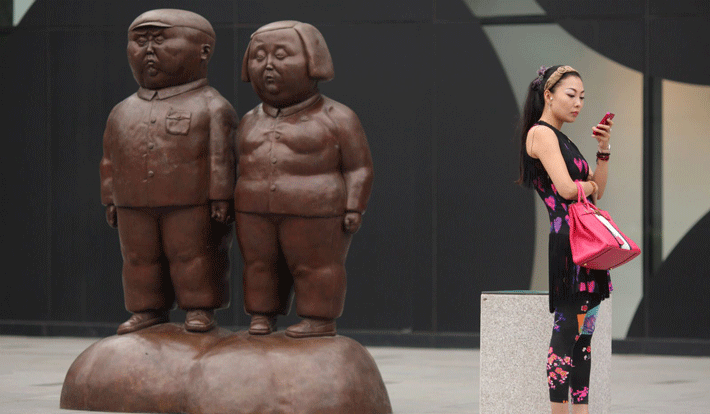China’s spending on high-end stuff is on the rebound—and it’s an impressive rebound to boot.

After about five years of coming in flat or even contracting slightly, spending on luxury within China suddenly grew 20% in 2017, led by women’s wear, jewelry, and cosmetics, according to a new report by the management consulting firm Bain & Company. One of the major contributors to that growth is millennials—luxury consumers that barely resemble the shoppers who first made China one of the world’s most lucrative luxury markets about a decade ago.
Defined by Bain as those born between 1983 and 1997, Chinese millennials start buying luxury younger, and they buy high-end products more frequently, the firm says. (It undoubtedly helps that they have more spending power than previous generations did at their age.) What they’re buying is also different. Bain surveyed about 500 Chinese millennials and found their interests leaned toward casual and street-inspired fashion.
Rather than buying traditional luxury status symbols such as Prada handbags, the report suggests, they’re looking to new products, such as Balenciaga sneakers, Gucci t-shirts, and streetwear. In Bain’s findings, uniqueness and newness were among millennials’ top considerations. It squares with other findings on what attracts millennials to luxury. A 2017 survey (pdf) by Deloitte of millennials in various countries, including China, found that uniqueness and quality was what most were after. “Heritage and aspirational qualities are less important,” Deloitte noted.
“This is a new China coming in as opposed to the old China coming back,” Bruno Lannes, a partner at Bain based in Shanghai, told Reuters.
Bain noted that a few other factors contributed to China’s 2017 jump in luxury buying. The country’s government has been implementing measures to get Chinese shoppers buying their pricey goods at home rather than abroad, where most purchases by Chinese luxury shoppers still take place. It has cut import duties, for instance, and cracked down on daigou—agents who buy goods in cheaper markets, such as Europe, and ship them back to buyers in China. Luxury brands have also been working to adjust their prices so they aren’t so comparatively expensive in China.
In the long term, millennials are poised to keep driving sales. Boston Consulting Group estimates that consumers 35 and younger will make up 65% of China’s consumption growth through 2020. These shoppers tend to be digitally savvy, and the access to information they’ve grown up with makes them highly opinionated, Bain says.
Brands would do well to take notice: Unlike in the past, when prestigious labels practically guaranteed sales in China, they’ll have to work to win over today’s young, moneyed Chinese shoppers.
Source: qz.com
